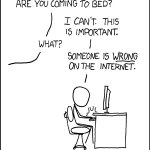
- Denying parole to aging, infirm people at this moment in time is… maddening. Several journalist friends called me yesterday about Gov. Newsom’s reversal of Sirhan Sirhan’s parole grant. Anyone who has read Yesterday’s Monsters will guess I am not surprised–in fact, I predicted this outcome, which was foreshadowed in his no-on-recall campaign, on this very blog. Just as with Leslie Van Houten’s parole bid, the fifty-year cling to political and optical considerations is jarring: fully rehabilitated people, advanced in years and presenting no risk to society, confined during a time of pandemic spike in prisons, to which they are especially vulnerable because of their age. Maddening but unsurprising. I think I’ve said it all so many times–what more is there to say?
- They worried about staff shortages b/c of vaccine mandate. They got staff shortages b/c of COVID. Yes, Omicron in prisons and jails clearly shows that we have learned nothing. But there is one new factor in this wave: a massive infection spike among the staff. Take a look at CDCR’s employee COVID ticker: as of this morning, there are 4,419 staff cases. Most facilities have more than 100 sick staff. Recall that the opposition to Judge Tigar’s vaccine mandate–in CCPOA’s appeal, the Governor’s supporting brief, and the Ninth Circuit’s decision to stay the mandate–was that vaccine requirements could lead to mass resignations and a difficulty in staffing prisons. I’m assuming that the irony of having to staff prisons when the staff sickens by droves is completely lost on everyone, so I feel compelled to flag it: for exactly the reasons CDCR and CCPOA state, it is impossible to run a prison in which wide swaths of the staff knowingly render themselves potentially unable to work. If allowing medically irresponsible decisionmaking among employees is a priority, something must give–and the obvious corollary (I’m so tired of saying this again and again) is: we must incarcerate far fewer people than we do because we cannot provide minimal, constitutionally compliant care for them under current circumstances.
- No good deed goes unpunished #1. Everyone in academia is exhausted, worn, burned out, just like yours truly. As in Tolstoy’s opening for Anna Karenina, there are infinite variations to the unhappiness, but the aggregate effect is the same: people trying to keep afloat by teaching their classes and having no bandwidth for anything else. I’m experiencing this on both sides: solicitations to review, to participate in panels, to assess grants, to do this or that, are flooding my inbox and I’m overwhelmed, just like everyone else. At the same time, as the book review editor for Law & Society Review, I’m finding it difficult to get reviewers and, when I do, the reviews arrive late or not at all. I get it. I really, truly do. The effort to keep the giant machine grinding beyond the essential components of the job, in the face of all THIS, is bewildering. It occurred to me that one way to help a little bit would be to compensate (not lavishly, but reasonably) for people’s efforts in this direction. Peer reviewing an article? Cash. Supervising a student’s independent work? Cash. Heavy-load committee? Cash. Panel appearance requiring preparation? Cash. This would be especially wonderful for the folks who are trying to write their way out of adjuncting while teaching at several institutions. Many of us, even in these high-prestige occupations, suffered a financial blow; many of us have spouses who had to quit or restructure their jobs to provide childcare, or have had to do that ourselves. Money is important in itself–it’s how we afford our lives–and it would also signal some recognition and gratitude for our efforts.
- No good deed goes unpunished #2. Speaking of lack of recognition and gratitude, this morning’s L.A. Times features the story of Patrisse Cullors, one of the national leaders of Black Lives Matter, who had to quit her position and regain her mental health in the face of threats from without and incessant critique from within that made her life a misery. I’m in a variety of activist scenes because of my work and I know exactly what she’s talking about. There is something very unhealthy, very rotten, in how we manage interpersonal relationships in activist spaces, and the unbearable ease of vomiting negativity and mobbing people on social media is enough to break anyone’s spirit. I would really like to create a sanctuary for exhausted activists and advocates–a place where people can come refresh their spirits and take care of themselves. Our movements for change will not survive if we continue treating each other like trash.




No comment yet, add your voice below!